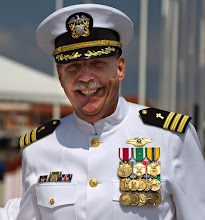Well the real beginning of our transition to the Orthodox Faith has taken place. Up to this point our lives have consisted of study,
mis-steps, preparation, and waiting. But the journey which began 27 years ago while attending Oral Roberts University Seminary where we discovered the existence of the Orthodox Church, finally saw us come aboard the "Ark of Salvation." On the 16
th of December 2007, Tamera and I were received into Holy Orthodoxy through the sacrament of "
Chrismation." In a short ceremony during the adult "Church School" class at All Saints
Antiochian Orthodox Church in Raleigh, NC, we were officially accepted as communicants in the One, Holy, Catholic, Apostolic, and
Orthodox Church. As we stood "barefoot" in front of our priest and confessed the ancient faith of the Apostles and Fathers of the Church through the centuries-old liturgy designated for such an occasion and the recitation of the Nicene-
Constantanopolitan Creed, he
anointed us each with the "Holy Chrism" on our foreheads, eyes, nostrils, ears, mouth, chest, back of the neck, top and palms of the hands, and our feet. When the sacrament was completed, we had once and for all joined the family of God as brother and sister to Saints Paul, Peter, Ignatius,
et al, and of course everyone else surrounding us in our wonderful new church family today.
Now we await the rest of the miracle. In an
unprecedented gesture, His
Eminence Metropolitan PHILIP, head of the "Self-Ruled
Antiochian Orthodox Christian Archdiocese of North America" has approved my ordination, first to the
Diaconate, and then to the Holy Priesthood in the Orthodox Church. The Lord willing, My
Diaconate ordination will take place at St. Basil's Orthodox Church in
Poquoson, VA on the 13
th of January 2008. His grace Bishop THOMAS of the Mid-Atlantic diocese will be presiding. Just a short two weeks later, my ordination to the Priesthood will take place at St. George's Orthodox Church in Jacksonville, FL on January 27
th, 2008. His Grace Bishop ANTOUN of the diocese of Miami and the Southeast will be presiding over that service. At that time, Lord willing once again, I will begin my "new life" not only as an Orthodox Priest, but as an Orthodox Chaplain in the United States Navy.
An even greater blessing in all of this for Tamera and me is the fact that our children and grandchildren are coming into the church as well. Lord willing, our son Jesse, his wife Elina and thier two children Misha and Elijah will soon be received into the church. Our other son Capt. John Pelikan, USA, his wife Rondi and thier daughter Karis as well as their best friends Capt. Brad McCoy, USA, his wife Stephanie and thier two sons Gabriel and Michael (our adopted children in the faith), will come into Holy Orthodoxy upon thier return from the war in Afghanistan. We pray for their protection and safe return to their awaiting families every day.
God bless all of you who have read my blog and followed this journey even though my posts have been few and far between. And may God bless you and your families in this wonderful season in which we honor and celebrate the Nativity of our Lord, and God, and Savior Jesus Christ.
I do plan to continue this blog and to hopefully post more often. I am continuing my studies of the Orthodox Faith and will not only use this blog, but hopefully a new website my son Jesse and I will be constructing which will be an outreach to others who might be interested in pursuing a deeper understanding of the Orthodox Faith, and to hopefully assist them to come into the church as well.
 https://www.google.com/maps/place/Cherry+Point+Base+Chapel/@34.903879,-76.900703,17z/data=!3m1!4b1!4m2!3m1!1s0x89a8c171576aa895:0x30a26f30578d932f?hl=en-US
https://www.google.com/maps/place/Cherry+Point+Base+Chapel/@34.903879,-76.900703,17z/data=!3m1!4b1!4m2!3m1!1s0x89a8c171576aa895:0x30a26f30578d932f?hl=en-US



